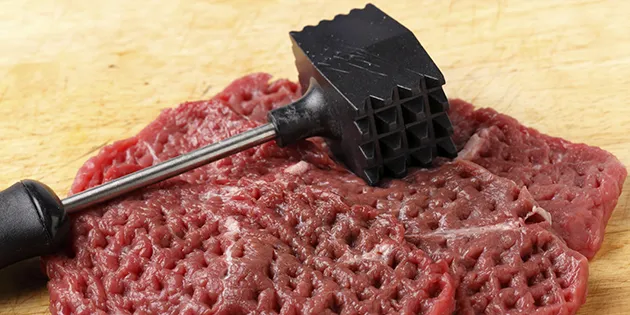Table of Contents
The Star Trek science fiction universe is a particular favourite of internet socialists. Partly that’s because of its ever-woker story-lines (Star Trek: Discovery, I’m looking at you), but mostly because of its “no money and all our stuff for free” utopia. But, tellingly, to realise such a utopia, Star Trek’s creators had to resort to magic.
Star Trek’s replicator technology is what is called in the SF biz “hand-wavium”. That is, it doesn’t extrapolate from known technology, nor provide an even semi-solid scientific justification: the creators just wave their hands and say, “Just ‘cos.” But replicators are the entire basis of Star Trek’s utopia-of-free-stuff. Replicators create anything out of nothing.
Back on Planet Reality, a tech company isn’t just waving its hands and making stuff out of nothing. But they are creating meat out of thin air.
A new entrant to the edible protein scene, the Berkeley-based startup Air Protein makes a meat alternative using NASA-inspired fermentation technology to transform CO2 — what we exhale into the air — into a complete edible protein.
As every home-brewer knows, microbes gobble up sugar and belch out CO2 (and that all-important alcohol). Air Protein’s microbes use the same sort of process – fermentation – scarf up CO2 and poop out protein.
Using fermentation tanks, which [Founder & CEO Dr. Lisa Dyson] refers to as “vertical protein farms,” in a process similar to making yogurt or wine, Air Protein combines “elements from the air we breathe — carbon dioxide, oxygen, and nitrogen (with) water and mineral nutrients,” the company says. Renewable energy powers their proprietary probiotic production process by which the microbes convert CO2 into amino acids. The final product is a protein-rich flour that can be used just like soy or pea flour. This protein flour can then be made into a plethora of delicious and nutritious meatless meat products[…]
Fermentation technology is enabling a new wave of alt-protein products — meat, eggs, and dairy — that are tasty and produced more sustainably and efficiently than their animal counterparts. And record levels of investment are enabling the technology.
In the first seven months of 2020 alone, $1.5 billion was invested in companies making alternative protein, according to a report by Good Food Institute (GFI) — and $435 million of that was for those using fermentation. Seeing the steady and rapid rise of innovative fermentation technology and protein products, GFI is calling fermentation the next pillar of alternative proteins.
“Fermentation is powering a new wave of alternative protein products with huge potential for improving flavor, sustainability, and production efficiency,” said Good Food Institute’s Associate Director of Science and Technology Dr. Liz Specht in the report. “Investors and innovators are recognizing this market potential, leading to a surge of activity in fermentation as an enabling platform for the alternative protein industry as a whole.”
East Bay Times
The added bonus of this process is that it actively sucks up CO2 from the atmosphere. Another Dyson – physicist Freeman Dyson – has proposed genetically engineering trees that would ingest incredible amounts of atmospheric CO2. Tweaking a similar process to produce food as well is surely a bonus.
Interstingly, Freeman Dyson originally proposed “Dyson Trees” as a method of creating a livable habitat for space travel. It was the question of feeding astronauts in a closed system like a spaceship that lead Lisa Dyson and colleague Dr John Reed to develop the Air Protein technology.
In the drive to feed a growing human population and at the same time reduce its burden on the natural environment, once again, science rather than green romanticism is showing the way.
Please share this article so that others can discover The BFD









